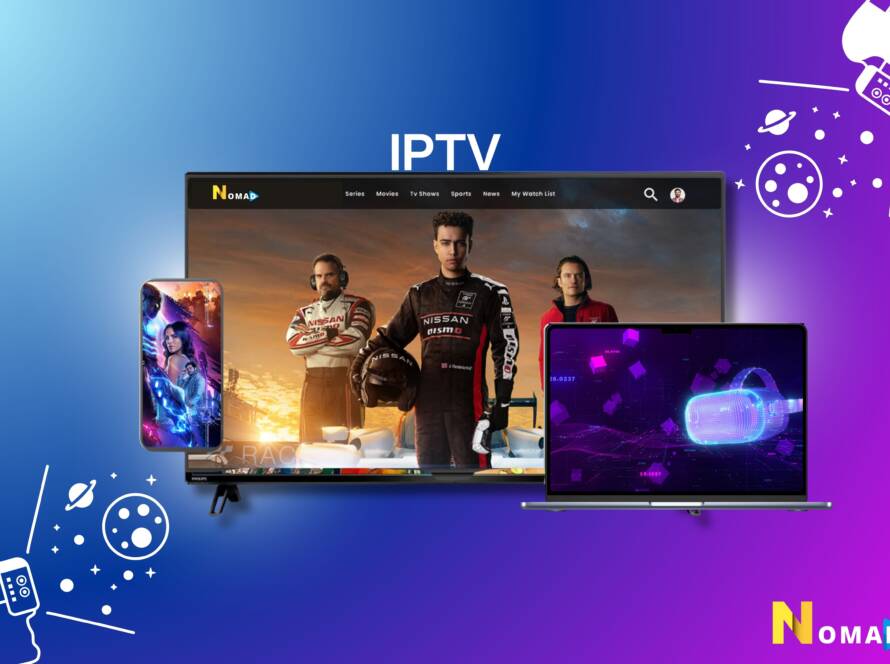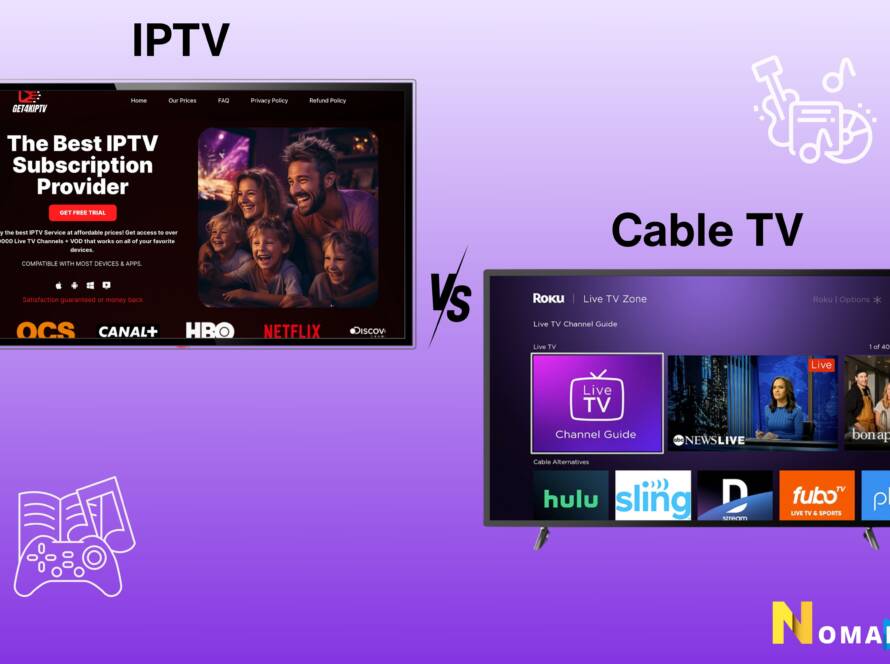Internet Protocol Television, also known as IPTV, represents a new way of media content utilization. Essentially, it is a more modern and digitalistic version of cable and satellite television that is broadcasted online. Through this method, it is possible to provide various advantages for the users, from comfortable viewing and endless channel opportunities to strange service scenarios. The purpose of this final guide is to present IPTV, explain the key characteristics, outline the major service providers, and explain its unique aspects in terms of channels and services.
Table of Contents
What is IPTV?
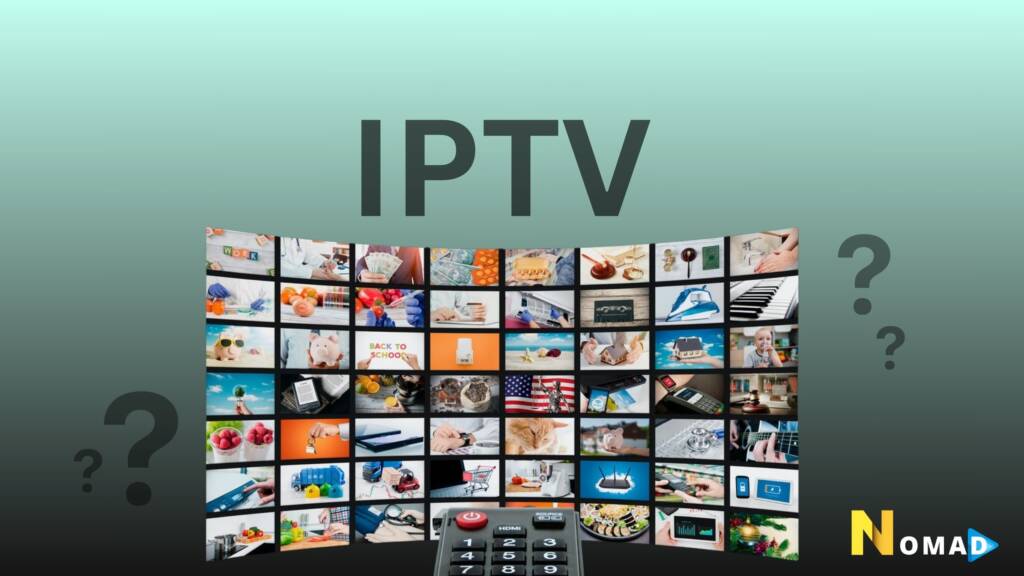
IPTV stands for Internet Protocol Television, this is a system where digital television service is delivered using Internet Protocol over a network infrastructure, such as the internet, instead of being delivered via conventional earthly, satellite, and cable television formats. IPTV Allows users to stream media content continuously and is usually viewed via a set-top box, computer, or mobile device.
How Does IPTV Work?
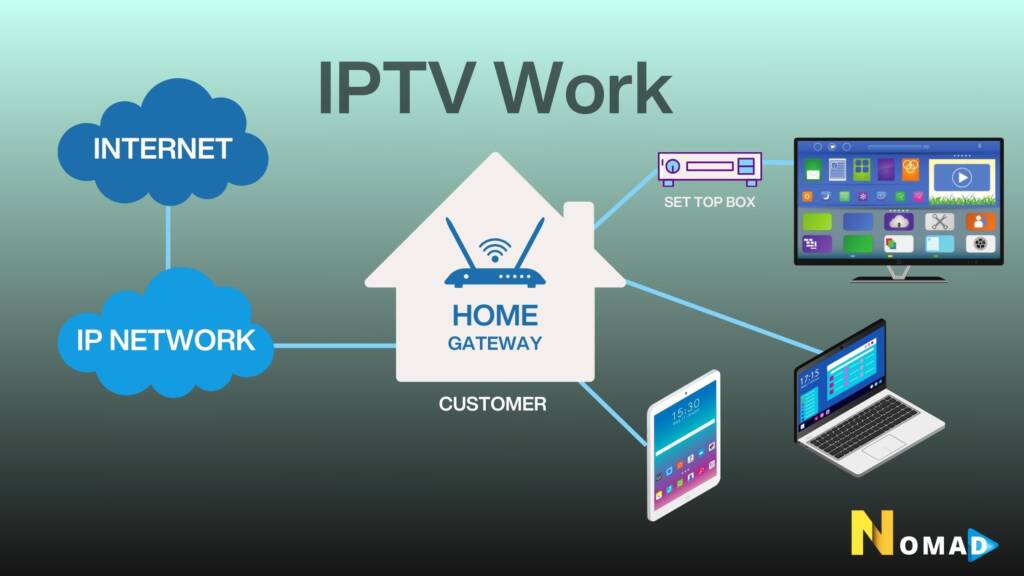
IPTV transfers television signals through IP (Internet Protocol) networks. Here’s a simplified breakdown of how it works:
- Content Acquisition: IPTV providers acquire TV shows, movies, and live broadcasts from various sources.
- Content Encoding: This content is then encoded into digital format, which is compatible with internet transmission.
- Content Delivery: The encoded content is delivered to subscribers via internet protocols, allowing for streaming.
- User Access: Users access the IPTV service through an app or a set-top box that decodes the digital signals back into a format viewable on their devices.
IPTV Services and Features
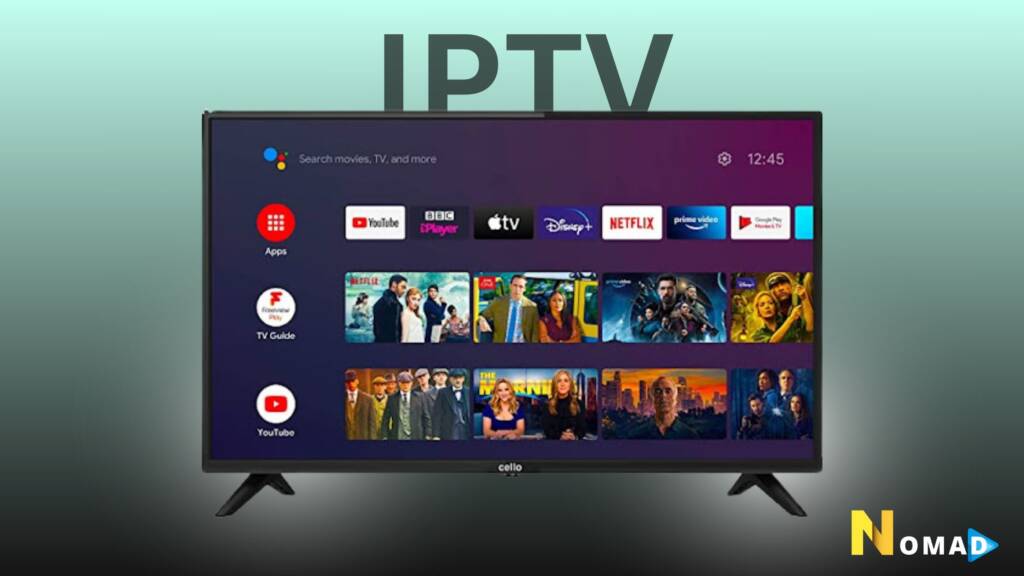
IPTV services come with various features that enhance the viewing experience:
- Electronic Program Guide (EPG): A digital guide providing information about upcoming programs.
- Video on Demand (VOD): Access to a library of movies and TV shows that you can watch anytime.
- Catch-up TV: Allows users to watch previously aired shows.
- Time-Shifted TV: Pause, rewind, or fast-forward live TV.
Types of IPTV Services
IPTV services are typically divided into three main categories:
- Live Television: Streaming of live TV broadcasts as they air in real-time. This includes news, sports, and live events.
- Time-Shifted Media: Also known as catch-up TV, this allows viewers to watch previously broadcasted programs at their convenience.
- Video on Demand (VOD): A library of videos that users can select from and watch instantly. This is similar to services like Netflix or Hulu.
IPTV Providers
There are numerous IPTV providers in the market, each offering a unique set of features, channels, and pricing models. Some of the popular ones include:
- Nomad IPTV: Known for its user-friendly interface and compatibility with various IPTV services Offers customizable packages with a variety of channels.
- Sling TV: Offers customizable packages with a variety of channels and on-demand content.
- Hulu with Live TV: Combines live TV with the extensive on-demand library of Hulu.
- YouTube TV: Provides a robust selection of live TV channels and unlimited DVR storage.
- IPTV Smarters: A popular app that allows users to integrate various IPTV services in one place.
- TiviMate: Known for its user-friendly interface and compatibility with various IPTV services.
Channels and Content
IPTV services often provide access to a vast array of channels, including local, national, and international networks. Here are some common categories of channels available on IPTV:
- Entertainment: Popular TV shows, movies, and series from networks like HBO, Showtime, and AMC.
- Sports: Live sports channels covering events from ESPN, Fox Sports, and regional sports networks.
- News: 24/7 news coverage from CNN, BBC, and Al Jazeera.
- Kids: Channels dedicated to children’s programming from Nickelodeon, Disney, and Cartoon Network.
- Lifestyle and Documentaries: Content from channels like Discovery, National Geographic, and Food Network.
Benefits of IPTV
- Flexibility: Watch your favorite content anytime, anywhere.
- Variety: Access a broader range of channels and on-demand content.
- Multi-device Access: Stream on various devices, including smartphones, tablets, and smart TVs.
- Interactive Features: Enjoy features like pause, rewind, and fast forward on live TV.
Potential Downsides
- Internet Dependency: Requires a stable and high-speed internet connection.
- Legal and Licensing Issues: Some IPTV services operate in a grey area, so it’s important to choose legitimate providers.
- Quality Variation: The quality of service can vary based on the provider and internet speed.
How to Choose an IPTV Service
When selecting an IPTV service, consider the following factors:
- Content Availability: Ensure the service offers the channels and content you are interested in.
- Device Compatibility: Check if the service is compatible with your devices.
- User Reviews: Look for reviews and ratings to gauge the reliability and quality of the service.
- Pricing: Compare prices and subscription models to find one that fits your budget.
- Customer Support: Reliable customer support is crucial for addressing any technical issues.
IPTV and Internet Speed
The proper internet speed is essential for an optimal IPTV experience. For standard definition streaming, a minimum internet speed of 5 Mbps is recommended, whereas high-definition (HD) content typically requires at least 10 Mbps. For those who want to watch ultra-high-definition (4K) content, speeds of 25 Mbps or higher are recommended.
To reduce potential interference and ensure a stable IPTV connection, consider using a wired Ethernet connection rather than Wi-Fi. In addition, upgrading your router to a newer model can boost network performance.
Managing network traffic by limiting the number of devices connected at once can also aid in maintaining consistent streaming quality. Finally, regular updates to your IPTV apps and firmware will ensure you have access to the most recent performance enhancements and security features.
IPTV Devices
IPTV can be accessed on a variety of devices, making it a versatile option for many viewers. The most common devices compatible with IPTV include:
- Smart TVs: Most modern smart TVs come with built-in IPTV apps or allow you to download IPTV apps from their app stores.
- Set-top boxes: Devices like Roku, Amazon Fire Stick, and Apple TV can be used to stream IPTV services.
- Computers and Laptops: IPTV can be accessed through web browsers or dedicated applications on both Windows and Mac systems.
- Smartphones and Tablets: Mobile devices running on Android or iOS support IPTV through downloadable apps.
- Gaming Consoles: Some gaming consoles like Xbox and PlayStation also offer IPTV app compatibility.
Setting up IPTV on different devices is typically straightforward:
- Smart TVs: Download the IPTV app from the TV’s app store, open the app, and enter your IPTV provider’s login details.
- Set-top boxes: Connect the device to your TV, download the IPTV app, and log in with your provider’s credentials.
- Computers and Laptops: Install the IPTV software or use a web browser to access the IPTV service, then log in with your account information.
- Smartphones and Tablets: Download the IPTV app from the Google Play Store or Apple App Store, then log in to start streaming.
- Gaming Consoles: Install the IPTV app from the console’s app store, and use your IPTV account to access content.
By following these steps, you can easily set up IPTV on any compatible device and enjoy a wide range of television content.
Legal Aspects of IPTV
Understanding the legal aspects of IPTV is critical for providing a secure and legitimate viewing experience. The legality of IPTV services is largely determined by whether the provider has obtained the necessary licensing agreements to distribute content. Licensed IPTV services follow the legal framework, ensuring that content creators and copyright holders are compensated for their efforts. These services comply with intellectual property laws and provide users with legal and dependable access to a wide range of television content.
However, there are significant risks involved in using unlicensed IPTV providers. These providers frequently operate without the proper permissions to distribute content, rendering their services illegal. Users who subscribe to unlicensed IPTV services may face a variety of consequences, including:
- Legal Risks: Streaming content from unlicensed providers can lead to legal action against the user, as it constitutes copyright infringement.
- Security Threats: Unlicensed IPTV services are more likely to expose users to malware, phishing attacks, and other cybersecurity threats.
- Unreliable Service: These providers often lack the infrastructure to deliver consistent and high-quality streaming, resulting in frequent interruptions and poor viewing experiences.
- Ethical Concerns: Using unlicensed services deprives content creators and distributors of their rightful earnings, impacting the entertainment industry’s overall health.
To avoid these risks, it is advisable to choose reputable and licensed IPTV providers that adhere to legal standards and ensure a safe, high-quality viewing experience.
Future of IPTV
The future of IPTV looks promising, driven by continuous advancements and innovations in technology. Emerging trends in IPTV technology are set to enhance the viewing experience and expand the capabilities of IPTV services.
Trends in IPTV Technology
- AI and Machine Learning: AI and machine learning are being integrated into IPTV services to provide personalized content recommendations, improving user engagement and satisfaction.
- Enhanced User Interfaces: The development of more intuitive and interactive user interfaces will make navigating IPTV services easier and more enjoyable.
- Cloud-Based Solutions: Cloud technology is enabling more scalable and efficient IPTV services, allowing providers to offer a wider range of content with better reliability and performance.
- 5G Connectivity: The rollout of 5G networks will significantly improve streaming quality and reduce latency, making IPTV services more accessible and reliable, even in high-definition formats.
Potential Advancements and Innovations
- Virtual Reality (VR) and Augmented Reality (AR): Future IPTV services may incorporate VR and AR technologies to create immersive viewing experiences, particularly for live events and sports.
- Interactive TV: Interactive features, such as voting, real-time statistics, and social media integration, will make IPTV more engaging and interactive for viewers.
- Advanced Analytics: Enhanced data analytics will enable IPTV providers to better understand viewer preferences and habits, leading to more targeted content and advertising.
- Seamless Multi-Device Integration: Improved synchronization across multiple devices will allow users to switch seamlessly between their TV, smartphone, tablet, and computer, maintaining a continuous viewing experience.
- Enhanced Security Measures: Innovations in security technology will protect IPTV services from piracy and cyber threats, ensuring a safer viewing environment.
As these trends and advancements continue to evolve, IPTV is set to become an even more integral part of our media consumption landscape, offering richer, more personalized, and more interactive viewing experiences.
Conclusion
IPTV offers a modern, flexible, and often more affordable way to enjoy television. By understanding how IPTV works, exploring different providers, and knowing what to look for in a service, you can find the perfect IPTV solution to meet your entertainment needs. Whether you’re a sports enthusiast, a movie buff, or someone who enjoys binge-watching TV series, IPTV has something to offer for everyone.
FAQS
What is IPTV?
IPTV (Internet Protocol Television) delivers TV content over the internet instead of traditional broadcast methods.
How is IPTV different from traditional cable TV?
IPTV streams content via the internet, offering on-demand viewing and interactive features, unlike scheduled broadcasts of traditional cable TV.
Can I use IPTV with a slow internet connection?
recommended for standard definition.
Are there free IPTV services available?
Yes, but they often have limitations and legal risks. It’s best to use licensed IPTV providers.
Is IPTV legal?
IPTV is legal when provided by licensed operators. Using unlicensed services can lead to legal issues.

